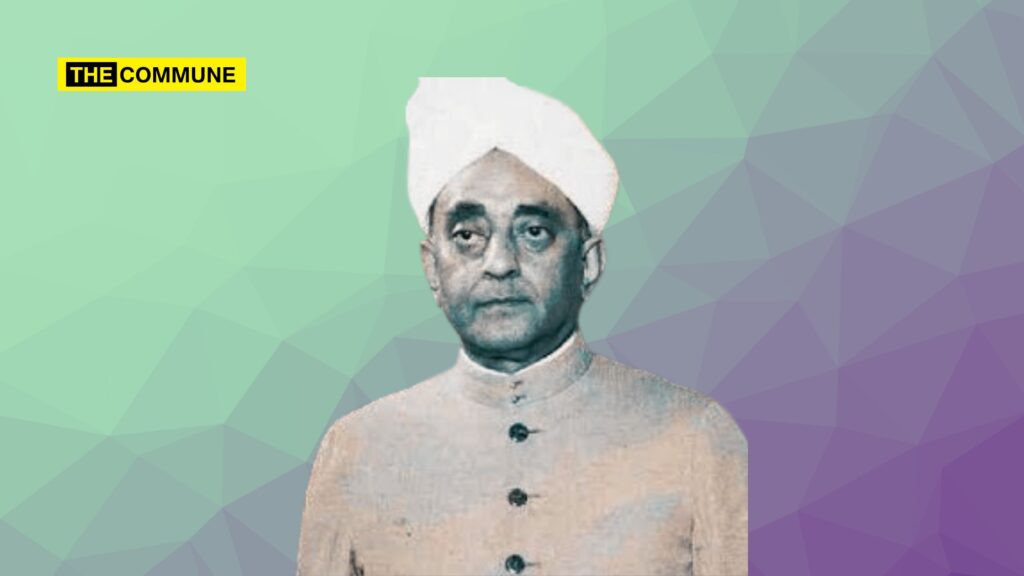Sir Chetput Pattabhiraman Ramaswami Iyer, KCSI, KCIE (12 November 1879 – 26 September 1966), commonly known as Sir CP, was a prominent Indian lawyer, administrator, and statesman, widely regarded as the most influential figure in the Madras Presidency during the years leading up to Indian Independence. Born in Madras, he attended Wesley College High School and Presidency College, later qualifying as a lawyer from the Madras Law College and joining the Madras Bar in 1903. In 1932, he completed his LLB from the London School of Economics and Political Science, furthering his contributions to India’s legal and administrative fields. He was arguably one of the most powerful Tamil Brahmins in colonial times.
Let us take a look at the multiple facets of this great son of Bharat Mata.
A Trailblazing Reformer
Sir Ramaswami Iyer introduced the Temple Entry Act in Travancore along with Sree Chithira Thirunal Balarama Varma, combating untouchability and earning praise from Mahatma Gandhi. Gandhi said, “The Temple Entry Act is a landmark in the history of social reform.” He is also regarded as an egalitarian and the first caste Hindu lawyer to admit a Dalit, N. Sivaraj as his junior
An Innovative Educator
The prominent lawyer brought in compulsory education. Sir Ramaswami Iyer pioneered India’s first free midday meal scheme, a precursor to later initiatives by Kamaraj & MGR. He used his influence to introduce free and compulsory education. His initiatives led to Kerala’s literacy success and set the stage for national reforms.
A Visionary Administrator
He electrified South India and established monumental projects like the Pallivasal and Pechiparai Hydroelectric Schemes, Mettur and Pykara Dams, and Lower Bhavani and laid the groundwork for Tungabhadra Dam. He was the first in India to start aluminium, fertilizer, ceramic, rayon, and other industries.
Dewan of Travancore
Travancore saw industrial, economic, cultural, and social transformation during his tenure. He abolished capital punishment, introduced an adult franchise, and was the first to appoint a lady advocate as District Judge in Travancore. He founded the University of Travancore. He created and launched the State Bank of Travancore, the Travancore Titanium Company, FACT, Indian Rare Earths, and Travancore Ceramics Ltd.
A Legal Luminary
He started life as an advocate and soon became the leader of the Original Side of Madras High Court. He handled several high-profile cases and won them, including the Ashe murder trial, Besant v. Narayaniah, the imprisonment of poet Mahakavi C. Subramania Bharathiyar, the case involving shipping magnate V. O. Chidambaram Pillai, and Pandit Motilal Nehru’s defamation suit against C.S. Ranga Iyer.
An Infrastructure Pioneer
He initiated the Cochin, Visakhapatnam, and Tuticorin Port Schemes. He was the first to nationalize road transport and built India’s first cement concrete road. He transformed Kanyakumari into the rice bowl of Travancore and championed the Ganga-Cauvery river-linking project. Under his vision, Travancore connected with India by air, making it the first princely state to do so.
A Statesman
He was Secretary of the All India Home Rule League and editor of the “New India”. He served as the General Secretary of the Calcutta Session of the Indian National Congress in 1917-18 alongside Pandit Jawaharlal Nehru. He was also India’s delegate to the League of Nations in Geneva in 1926-27 and represented the country at the First Indian Round Table Conference in London in 1931. He was also India’s delegate to the 1933 World Economic Conference. He also co-founded Indian Bank and Ramakrishna Students’ Home.
Countering DMK’s Secessionist Demands
In January 1962, in response to the DMK’s growing secessionist demands, Nehru convened the National Integration Council and decided to form a committee to address regionalism. In a surprising move, he appointed Sir C. P. as the head of the committee. Despite his own call for the independence of Travancore just 15 years earlier, CP’s leadership proved effective. He proposed the Sixteenth Amendment to the Constitution, which required a mandatory oath of allegiance for election to Parliament. Faced with the possibility of a confrontation, the DMK chose to back down and abandoned its demand for separation, effectively neutralizing the threat and securing CP’s legacy.
Sir CP’s visionary approach and pioneering initiatives laid the foundation for modern India. A descendant of the esteemed Appaya Dikshitar and a Sama Vedi, he brought a forward-thinking outlook that influenced the country’s development across many fields.
Baskar is a finance professional with a keen interest in current affairs and Indian culture.
Subscribe to our Telegram, WhatsApp, and Instagram channels and get the best stories of the day delivered to you personally.

